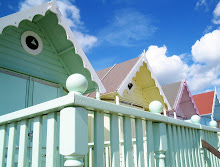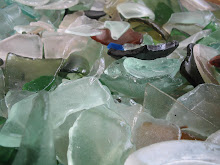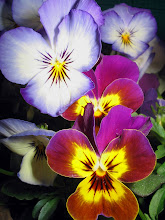
I wasn’t sure what to expect from this novel. I’d read a couple of Rachel Cusk’s earlier books – Saving Agnes (which won the Whitbread First Novel Award) and The Country Life (Somerset Maugham Award) – so I knew how intense, darkly comic and keenly observed Cusk’s writing can be. And it is all these in Arlington Park. Yet while there are moments of grim humour, this is absolutely not a light comedy of middle-class suburban manners. It may be set in kitchens and bedrooms and within the maelstrom of domestic life, but it’s a whole world away from chic-lit and Aga-sagas.
And there’s a dead bird on the cover. Which kind of sets the tone.
This is not a book for domestic goddesses – nor for those for whom homemaking and motherhood are arts and ends in themselves. Neither will it be welcomed by those for whom the maintenance of hope and harmony and the preservation of a particular view of what women are for are made possible only by keeping too many awkward questions firmly at bay. It should be avoided at all costs by women who suspect that, if they once stop paddling furiously beneath the calm(ish) surface of domesticity, they will sink without trace – for the subject of Arlington Park is festering anger and dislocation; its characters women who stumble around their child-laden lives in a slightly puzzled daze, occasionally colliding with male partners who seem strange, alien creatures from a quite different world. (I fear that most male readers will be entirely baffled from start to finish.)
But, if you’re a woman and you’ve ever lifted your head from the chores for a moment, looked around and asked ‘who are these people around me?’, ‘do I really know them?’, ‘do I even like them?’, ‘how did I get here’, or ‘what is the point of all this, where will it all end and what will become of me?’, then this will strike some chords. And they won't be sweet, harmonious chords, but dangerous, dissonant ones. Cusk is fearless in laying bare the kind of awful truths that most would shy away from articulating. She exposes the fictions of middle-class women’s lives. Yet the writing is so very, very good and so intelligent that we are gripped by an almost morbid curiosity as we are offered windows into the day-filling activities (or inactivities) of a disparate group of women whose chief connection is that they all live within the leafy, aspirational boundaries of Arlington Park.
The chapters are often so loosely connected that at times I thought this might have worked better had it defined itself as a series of short stories rather than as a novel. Some of the women meet at a coffee morning, others on a shopping trip and there’s a gruesomely awful dinner party near the end which brings another group together, but there is no ‘storyline’ in the traditional sense. Everything takes place during the course of a single day, and the book's structure does lend emphasis to the aimlessness and disorganisation of the women, the tenuousness of their supposed friendships. Nothing really 'happens'. And that is the point.
While her observations can be searingly cruel, Cusk never holds up her characters for our derision. Neither does she ask us to pity them. She is simply showing us their situations as they are on the day in question. If we recognise them, and there's a resonance with our own lives, then so be it, but the writer doesn’t offer any answers:
'Maisie . . . felt entombed, unprotestingly, in the untidiness of the house: it was draped over her like a shroud with no openings for her arms and legs, so that when she walked around it or reached out to touch it she felt a kind of dragging following movement, and a sense of amputated numbness. Little plastic figures – of horses with gaudy pink fountains of hair, of girls with encephalitic heads, of miniature train drivers and men in hard hats, of jungle animals and red Indians and tiny women with plaits and gingham aprons – lay everywhere on the floor on their sides . . . There were balls of tissue paper and the empty lids of felt-tip pens, hair slides and plastic combs and pencil sharpeners, marbles and rulers and crayons and the little rubber carcasses of burst balloons; there was a rocking horse draped like a tramp in layers of contradictory garments, through which his head protruded with despondent dignity; there was a multicoloured landslide of Lego that spilled out over the tracks of a toy train. There was a big disorderly heap of books on the top of which a small magnifying glass rested. There were clothes, new and old, clean and dirty, that had escaped their allotted places and were joined all together in riotous celebration.’
In an interview in the Daily Mail in 2005 – Cusk, having weathered the critical storm surrounding her non-fiction account of becoming a mother, A Life’s Work, concluded:
‘Overall, I now find family life a great source of joy, but as a woman you pay a big price for it. I remain fascinated by where you go as a woman once you are a mother, and if you ever come back.’
It is the possibility of ‘coming back’ which Arlington Park explores so starkly. As we leave the characters at the end of the book, the outlook isn’t great. All that these mothers can achieve, it seems to say – if they’re lucky - is some small turning point or other, some brief epiphany, through which they glimpse their true selves for an instant before returning helplessly to the domestic fray.
I’m very pleased that I read this book - I do believe that it's an extraordinary piece of writing - but I did make the mistake of reading it while at a low ebb, and I cannot pretend that it didn’t make me feel a whole lot worse! If you’re a mother, read it when you’re feeling strong. Or when your children have left home.
(NB A long and thought-provoking article in the Guardian by Rachel Cusk - which begins with some highly percipient observations about book clubs and goes on to meditate, via Chekhov, on the many difficulties facing a writer who tries to render the absolute truth about modern living can be found here .)
And there’s a dead bird on the cover. Which kind of sets the tone.
This is not a book for domestic goddesses – nor for those for whom homemaking and motherhood are arts and ends in themselves. Neither will it be welcomed by those for whom the maintenance of hope and harmony and the preservation of a particular view of what women are for are made possible only by keeping too many awkward questions firmly at bay. It should be avoided at all costs by women who suspect that, if they once stop paddling furiously beneath the calm(ish) surface of domesticity, they will sink without trace – for the subject of Arlington Park is festering anger and dislocation; its characters women who stumble around their child-laden lives in a slightly puzzled daze, occasionally colliding with male partners who seem strange, alien creatures from a quite different world. (I fear that most male readers will be entirely baffled from start to finish.)
But, if you’re a woman and you’ve ever lifted your head from the chores for a moment, looked around and asked ‘who are these people around me?’, ‘do I really know them?’, ‘do I even like them?’, ‘how did I get here’, or ‘what is the point of all this, where will it all end and what will become of me?’, then this will strike some chords. And they won't be sweet, harmonious chords, but dangerous, dissonant ones. Cusk is fearless in laying bare the kind of awful truths that most would shy away from articulating. She exposes the fictions of middle-class women’s lives. Yet the writing is so very, very good and so intelligent that we are gripped by an almost morbid curiosity as we are offered windows into the day-filling activities (or inactivities) of a disparate group of women whose chief connection is that they all live within the leafy, aspirational boundaries of Arlington Park.
The chapters are often so loosely connected that at times I thought this might have worked better had it defined itself as a series of short stories rather than as a novel. Some of the women meet at a coffee morning, others on a shopping trip and there’s a gruesomely awful dinner party near the end which brings another group together, but there is no ‘storyline’ in the traditional sense. Everything takes place during the course of a single day, and the book's structure does lend emphasis to the aimlessness and disorganisation of the women, the tenuousness of their supposed friendships. Nothing really 'happens'. And that is the point.
While her observations can be searingly cruel, Cusk never holds up her characters for our derision. Neither does she ask us to pity them. She is simply showing us their situations as they are on the day in question. If we recognise them, and there's a resonance with our own lives, then so be it, but the writer doesn’t offer any answers:
'Maisie . . . felt entombed, unprotestingly, in the untidiness of the house: it was draped over her like a shroud with no openings for her arms and legs, so that when she walked around it or reached out to touch it she felt a kind of dragging following movement, and a sense of amputated numbness. Little plastic figures – of horses with gaudy pink fountains of hair, of girls with encephalitic heads, of miniature train drivers and men in hard hats, of jungle animals and red Indians and tiny women with plaits and gingham aprons – lay everywhere on the floor on their sides . . . There were balls of tissue paper and the empty lids of felt-tip pens, hair slides and plastic combs and pencil sharpeners, marbles and rulers and crayons and the little rubber carcasses of burst balloons; there was a rocking horse draped like a tramp in layers of contradictory garments, through which his head protruded with despondent dignity; there was a multicoloured landslide of Lego that spilled out over the tracks of a toy train. There was a big disorderly heap of books on the top of which a small magnifying glass rested. There were clothes, new and old, clean and dirty, that had escaped their allotted places and were joined all together in riotous celebration.’
In an interview in the Daily Mail in 2005 – Cusk, having weathered the critical storm surrounding her non-fiction account of becoming a mother, A Life’s Work, concluded:
‘Overall, I now find family life a great source of joy, but as a woman you pay a big price for it. I remain fascinated by where you go as a woman once you are a mother, and if you ever come back.’
It is the possibility of ‘coming back’ which Arlington Park explores so starkly. As we leave the characters at the end of the book, the outlook isn’t great. All that these mothers can achieve, it seems to say – if they’re lucky - is some small turning point or other, some brief epiphany, through which they glimpse their true selves for an instant before returning helplessly to the domestic fray.
I’m very pleased that I read this book - I do believe that it's an extraordinary piece of writing - but I did make the mistake of reading it while at a low ebb, and I cannot pretend that it didn’t make me feel a whole lot worse! If you’re a mother, read it when you’re feeling strong. Or when your children have left home.
(NB A long and thought-provoking article in the Guardian by Rachel Cusk - which begins with some highly percipient observations about book clubs and goes on to meditate, via Chekhov, on the many difficulties facing a writer who tries to render the absolute truth about modern living can be found here .)





















3 comments:
Fascinating and perceptive, Juliet, and sounds like a 'must read'. Thank you. Perhaps we should coin a phrase to summarise women who do not see themselves as domestic goddesses (nor who aspire to be) but who, perhaps, want to spread their wings a little further. Just to see what happens.
If I wasn't all written out (and all painted out) today, I'd try to come up with something appropriate. Maybe I'll sleep on it.
Well, be warned, it's a deeply uncomfortable read in many ways, but a genuine and beautifully written attempt to wrestle meaning from aspects of women's lives in contemporary suburbia.
The quoted passage describing a child's bedroom floor was echoing in my mind this evening, as I caught sight of my younger daughter's room and sincerely wished I hadn't - it was immaculately tidy only days ago and now is in just that heart-sinking, soul-destroying state of utter fluffy, glittery, plastic-limbed chaos . . .
It is a measure of my position on the the domestic goddess ladder (ie a very low rung indeed - with one foot still on the ground), that my solution was to shut the door on it a pour myself a glass of wine!
Sorry for late comment (daughter's dog, Friday, has moved in and has taken over my life). I loved this book and very much enjoyed reading your thoughts on it. I found that Cussack seemed to express so much in what, I found, quite a spare way of writing. I found myself thinking about things that she had said a long time after. Teresa
Post a Comment